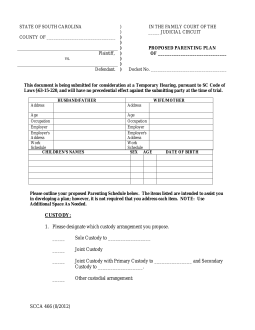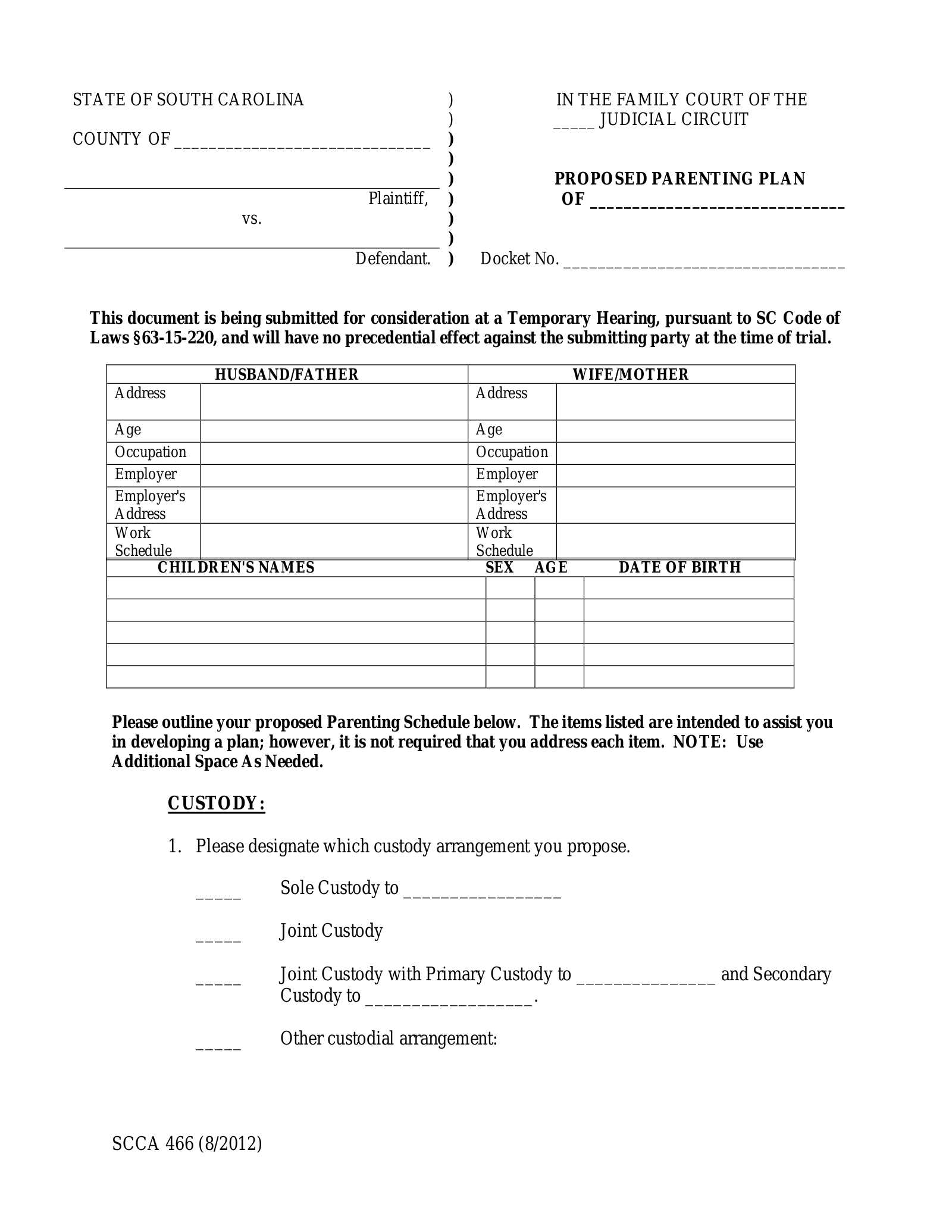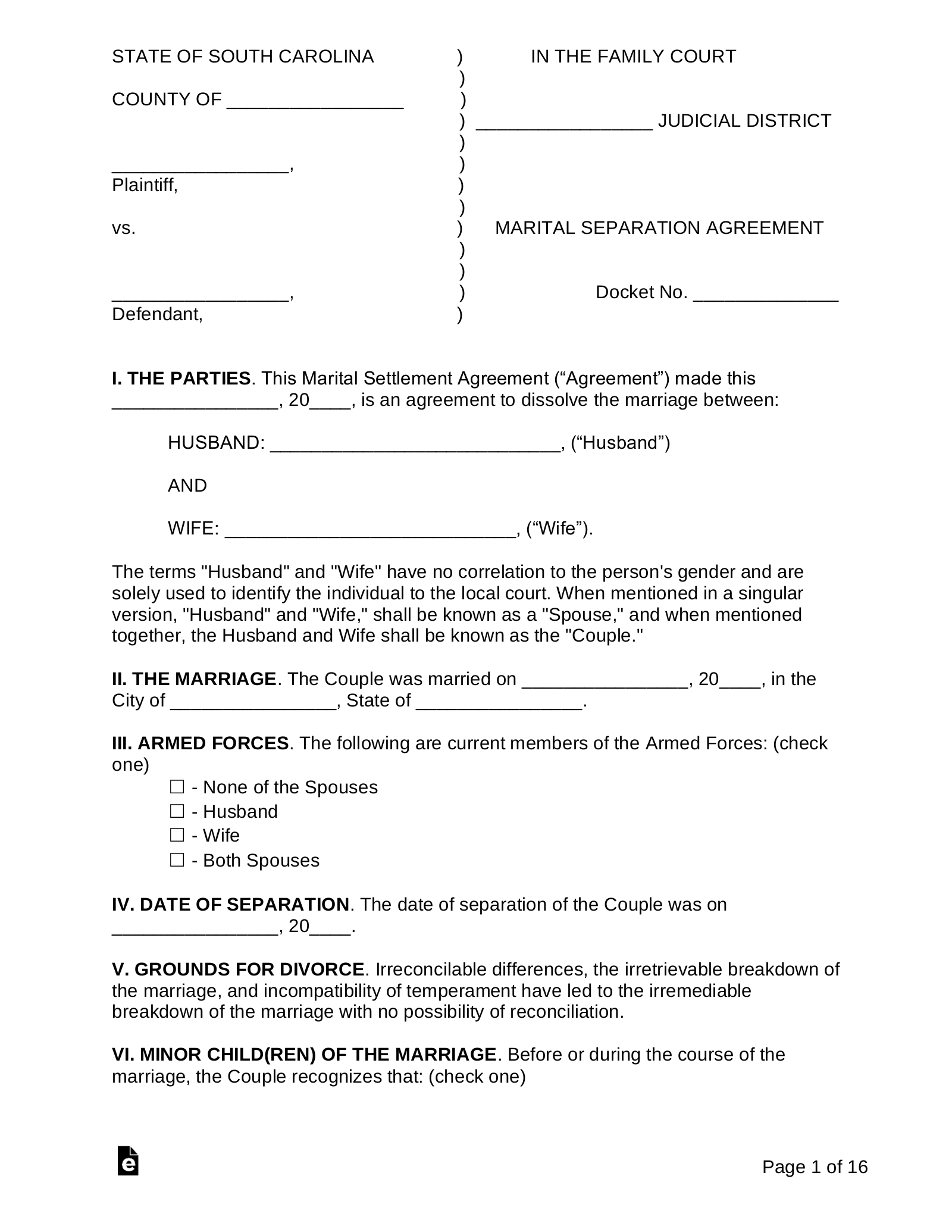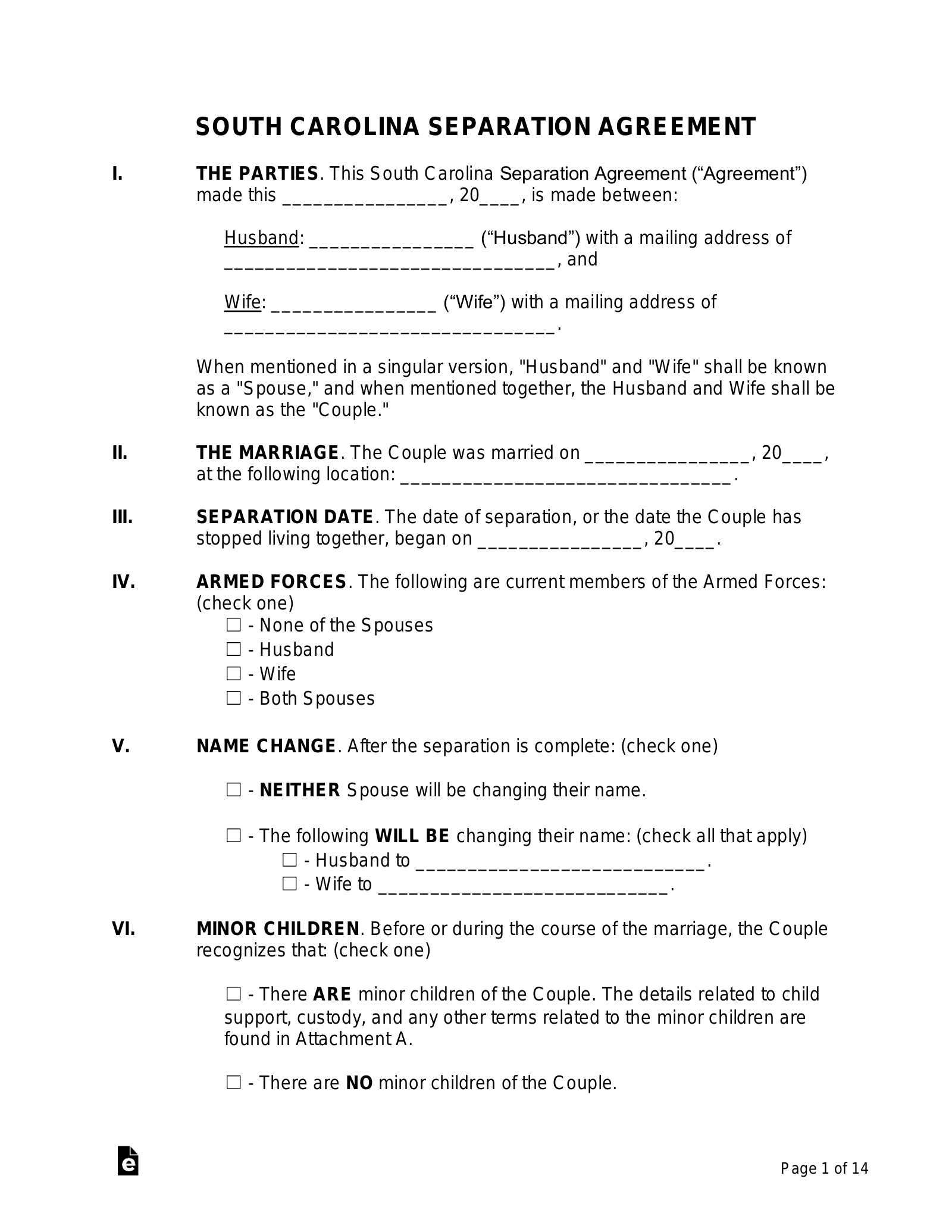Updated September 22, 2023
A South Carolina custody agreement is a legal document that delineates the rights and responsibilities of two parents in regard to their child upon the dissolution of their relationship. The agreement clarifies such matters as how much time the child will spend with each parent, who is permitted to make what kinds of decisions about the child’s life and influences, and how disputes will be handled. South Carolina courts prioritize the child’s best interest in all custody actions.
Child Custody Factors
In South Carolina, courts consider the following factors when making decisions on custody:
- The child’s best interest
- The temperament and developmental needs of the child
- The capacity and the disposition of the parents to meet the child’s needs
- The child’s preference
- The parents’ preferences
- The past and current relationship of the child with each parent and other family members
- The actions of each parent to encourage a continued relationship between the other parent and the child
- Whether either parent has engaged in manipulative or coercive behavior in an effort to involve the child in the parents’ dispute
- Any effort by one parent to disparage the other parent in front of the child
- The ability of each parent to be actively involved in the life of the child
- The child’s adjustment to his or her home, school, and community environments
- The stability of the child’s existing and proposed residences
- The mental and physical health of all individuals involved
- The child’s cultural and spiritual background
- Whether the child or a sibling of the child has been abused or neglected
- Whether one parent has perpetrated domestic violence or child abuse
- Whether one parent has relocated more than 100 miles from the child’s primary residence in the past year
Table of Contents |
How to File for Custody in South Carolina
A custody action can be initiated as part of a divorce proceeding.[1] Otherwise, follow the steps below.
1. Agree on a Parenting Plan
The first step should be for parents to reach an agreement on the type of custody they want. This should be detailed in the parenting plan, which outlines the proposed parenting arrangements between the two parties. A parenting plan submitted jointly is more likely to be approved by the court, as long as it serves the best interest of the child.
2. Calculate Child Support
South Carolina courts determine child support obligations using the sum of each parent’s gross income and the number of children eligible for support. Use the state’s Child Support Calculator for an estimate of how much child support may be ordered by the court.
3. File Required Paperwork
In order to initiate a custody action, file the following forms: SCCA 467, SCCA 401F, SCCA 400.41 SRL-VIS, and SCCA 405F. Respectively, these are a cover sheet, summons, complaint, and motion. Once completed, make two copies of each – one for each party. These must be filed with the appropriate clerk in the Family Court in the county where the child lives. The filing fee is $150.
4. Serve Paperwork
If the petition was only filed by one party, the other party must be properly served with a copy, using either a sheriff, private process server, commercial delivery service, certified mail, or an Acceptance of Service form. An Affidavit of Service must be filed with the clerk of the Family Court to show that the defendant, or responding party, was served correctly.
5. Request Hearing
Next, complete the Request for Hearing form and file it with the Clerk of Court, who will set a hearing date. A copy of the Notice of Hearing issued by the clerk must be sent to the responding party via certified mail; a return receipt must be requested.
6. Attend Hearing
During the hearing, each parent will be asked to make their case. To prepare, complete the Script and the Order forms. At the final hearing, either party may file and submit an updated parenting plan for the court to consider.[2]
Judges can assign joint custody, meaning both parents have equal rights and responsibilities for major decisions related to the child, including education, medical care, and religious training, but not necessarily implying equal parenting time. The court can also assign sole custody to one party.
Custody Laws
- Child’s Preference: The court will consider the child’s “reasonable preference for custody” and in so doing, consider the child’s age, experience, maturity, judgment, and ability to indicate a reasonable preference.[3]
- Domestic Violence: § 63-15-40, 50
- Native American Children: § 63-15-306
- Service Members: Article 5, Subarticle 1
- Uniform Child Custody Jurisdiction and Enforcement Act: Article 3
- Visitation: § 63-15-230
Related Forms




